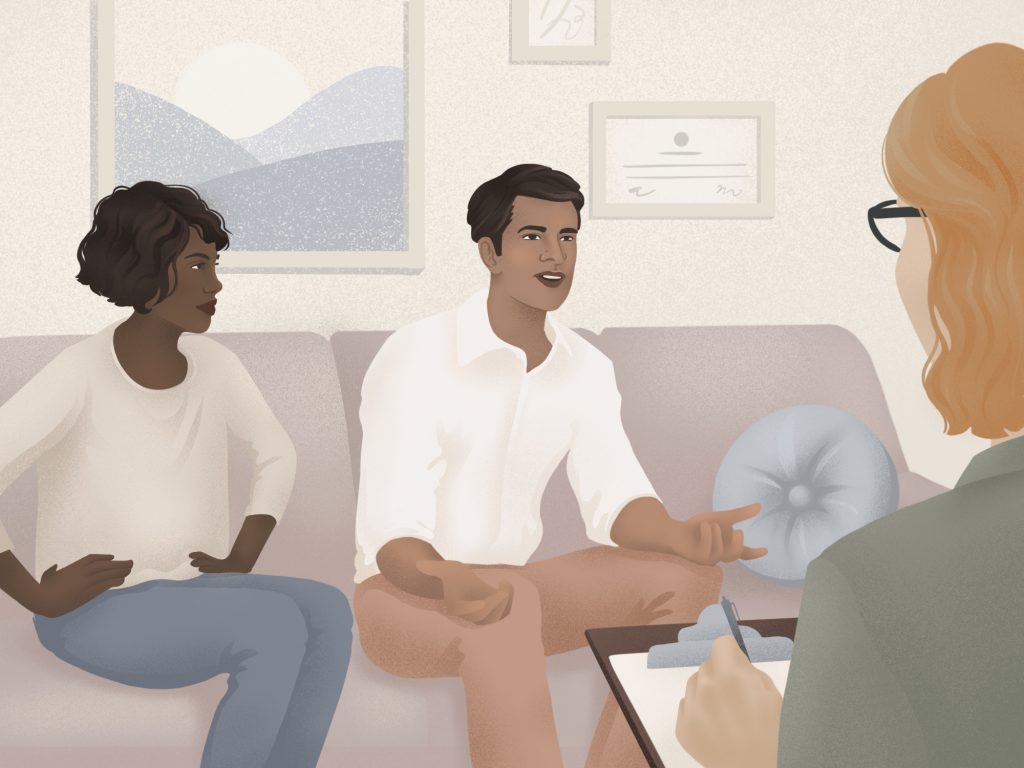Couples Therapy
Make your mental health a priority.
Schedule your free 15-minute consultation.

What is Couples Therapy?
People come to us for couples therapy for a variety of reasons. One of the benefits of couples therapy is having an impartial, trained therapist help the two of you together work through the issues that have you fighting, in conflict or struggling with satisfaction in your relationship. With couples we will build a better understanding of how your experiences overlap and how they differ, how that affects your choices today and how that impacts your relationship. We will help you to build healthy communication skills and avoid getting stuck in unhealthy and unhelpful cycles.
Who do we treat?
At Behr Psychology, we work with couples of all kinds. We provide marital and premarital therapy, work with inter-racial, inter-ethnic and inter-religious couples, as well as couples with children, couples who are family planning, couples who are breaking up, and couples who just want to improve their communication skills. At Behr Psychology, our clinicians are all culturally sensitive, LGBTQIA+ friendly and accepting of all lifestyles.
Sometimes people worry that their therapist will take sides. Our therapists and psychologists listen with open minds and reflect back to you and your partner what they see and hear from both of you in an impartial way.
What to expect
Couples therapy is a collaborative experience. Couples have the opportunity to work with a highly trained therapist to address the issues that threaten or weaken their relationship in a safe and impartial environment. Your therapist will speak to both of you in a joint meeting where the goal is for the couple to function in health.

